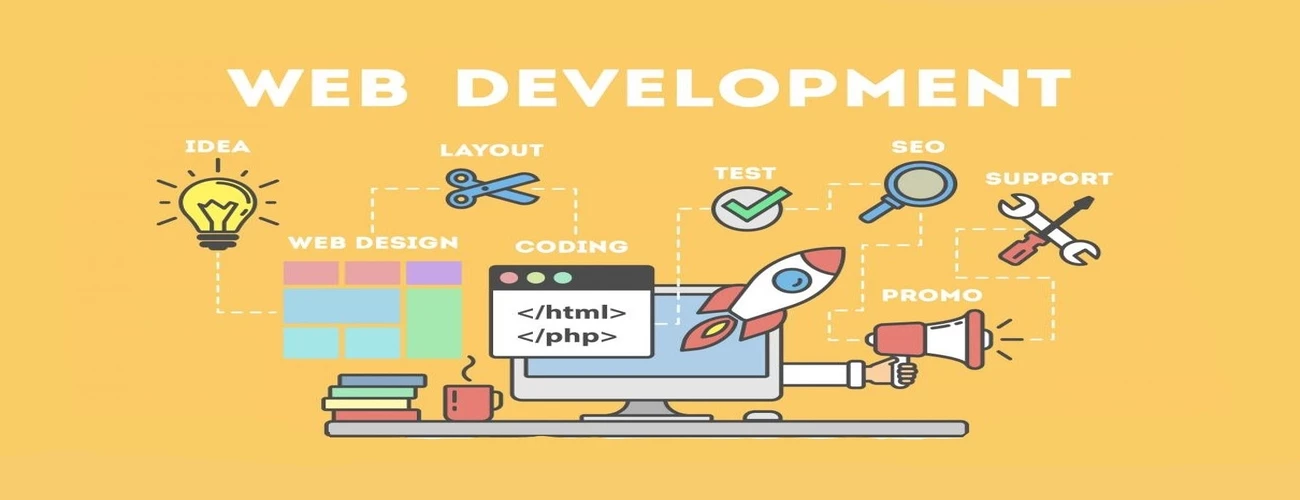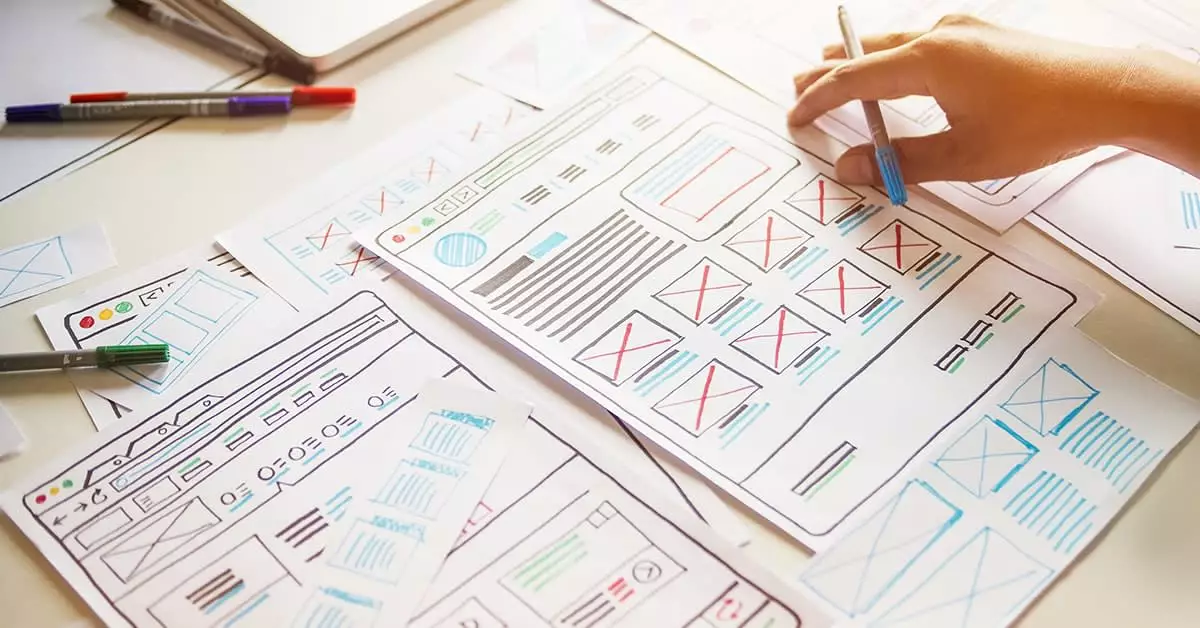Stages of website development: the path from idea to release

Website development is a complex and long process that can be broken down into specific steps. This includes the stage of site design, programming, content filling, testing and much more. At each of the stages, the process involves specialists with different competencies: web designers, marketers, programmers, layout designers.
What should be taken into account when creating a website? We realize that our clients most often do not know how extensive the process is behind the term "website development", so we have prepared this material so that you can understand in detail each of the stages of work.
Defining the project task
When a client comes to MEGASITE with a request to create a website, our team first of all understands the task and tries to get maximum information to form a clear goal of the web resource. It is on this will depend on the proposed solution and method of realization of the project.
The goals that clients most often want to achieve with the help of a website are:
- Attracting new customers, partners, employees;
- increase brand awareness;
- sale of goods and services.
When planning work on the site, it should be taken into account that most often the project should meet several business goals at once.
Analysis of CA and competitors
The next stage of work on creating a website is to study the company's target audience, their product and the market in general. In order to develop a product that will meet the expectations of the client, it is necessary to carefully study the competitors in the niche, the UTP of the brand or its products, as well as the needs and objections of the main consumers.
It is necessary to realize that this stage should not be underestimated, because the resource is not created to exist in a vacuum, but to effectively interact with the audience. It encourages the CA to make the action required by the company. Therefore, when creating a website, not only the wishes of the brand are taken into account, but also the needs of its customers.

Creating the terms of reference
TOR - this is one of the key documents on the basis of which the whole process of creating a site is built. Terms of Reference can also be called a stage of project planning, because it specifies all the requirements for the site without exception and the tasks that must be achieved: a general description of the project, structure, design requirements, functionality, content requirements, delivery date. Once the concept of the site is drafted and approved together with the client, the next stage of development begins.
Prototyping and design
First, the designer is engaged in drawing a prototype of each page, which schematically depicts the location of blocks, placement of illustrations and text. Only after approval of the prototype with the customer we start to create the design of the site.
Design layouts are created based on the prototype and the requirements spelled out in the terms of reference. Here the web designer works on creating a unique style and individual elements - bars, buttons, fonts, etc.

The layout and programming stage
At this stage, the rendered design undergoes adaptation into HTML code. The main goal of the layout designer is to accurately transfer the layout into the real code, with the correct display of illustrations, blocks and other elements. At the same time, the layout should provide for the correct display of the site on different browsers and media, whether it is a smartphone, tablet or PC.
At the programming stage, the "front" side of the site, which the user sees, comes to life and becomes functional. The programmer works with the internal content, which includes:
- resource management system;
- database;
- download mechanism;
- receiving requests, sending notifications and other processes that remain out of sight of ordinary visitors.
Optimization and adding content
SEO allows you to "promote" the site to the top positions in Google for certain user queries. If a business has a highly competitive niche, without search engine promotion, it will constantly lose its potential customers. SEO works well for both e-commerce sites and corporate websites of companies.
At this stage of resource development, most often only the first part of SEO - internal optimization - is used. This includes filling the website with relevant and high-quality content, linking pages, prescribing meta tags, etc. External optimization is done after the launch of the project. It is about building up the reference mass on the resource, so that for the search engine it was more weighty and authoritative.
Testing and launching
At the testing stage, the tester checks the performance of the resource and its compliance with all the parameters prescribed in the TOR. The speed of page loading, functionality, usability for people with different skills, optimization of visuals for different browsers and screen sizes, security level of key pages in case of external impact are evaluated.
After successfully passing the testing stage, the resource is transferred to the client's domain and hosting is connected.
After testing is completed and all services are connected, the resource and all rights to it are transferred to the client.
Technical support
In addition to transferring all rights to the site to the client, the developer trains the client's employees to work with the admin panel, so that in the future they can independently update content, add news, product cards, pages, collect analytics of user behavior on the resource.
In the process of operating the website after the launch there is a chance to find some errors in the display of pages or other problems. In this case, the client can contact the developer to eliminate errors and solve all other issues concerning the resource.
If you are looking for a web studio in Kiev or all over Ukraine for your website, IT-company MEGASITE invites you to a free consultation, during which we will study your task and offer the best solution. Our studio has a great experience and pays attention to each stage of the project realization.
What we offer:
- website development;
- online store development;
- development of Lending Page;
- corporate website development;
- SEO-promotion;
- contextual advertising;
- development of mobile applications.
To contact us, leave a request on the website or call us at +38 (095) 1000 119.
Your project
Call/write:


